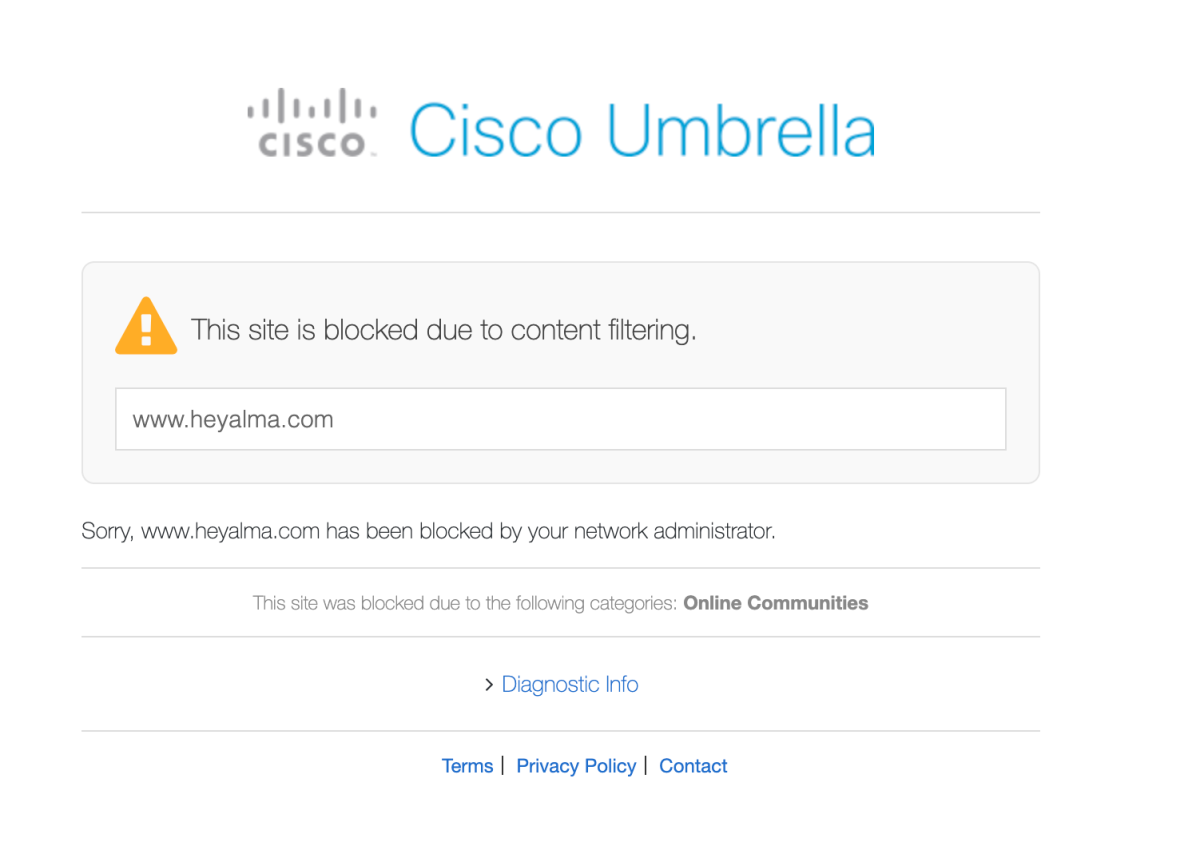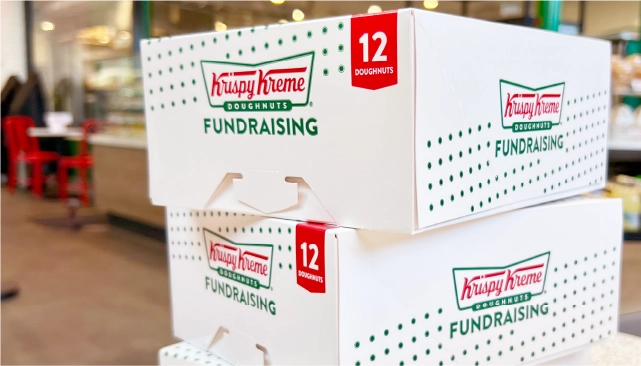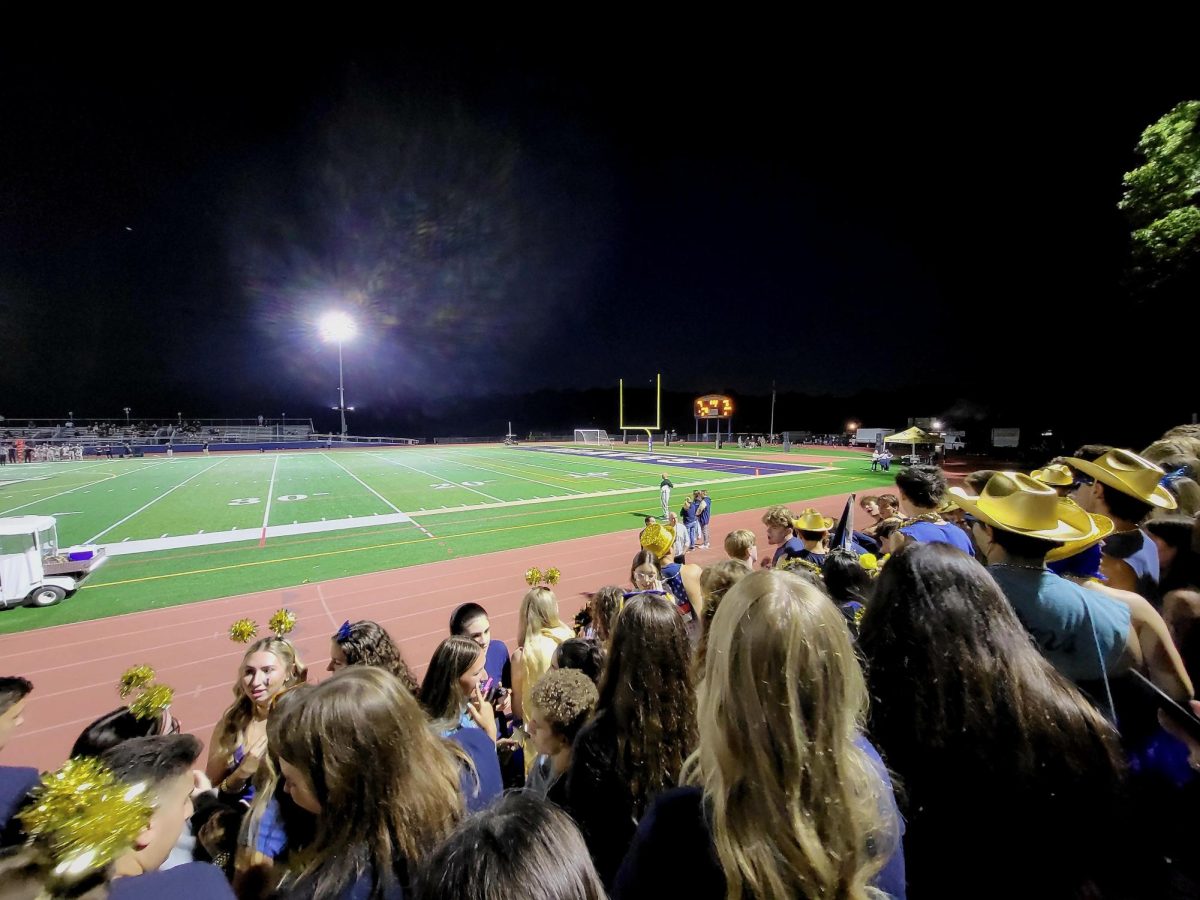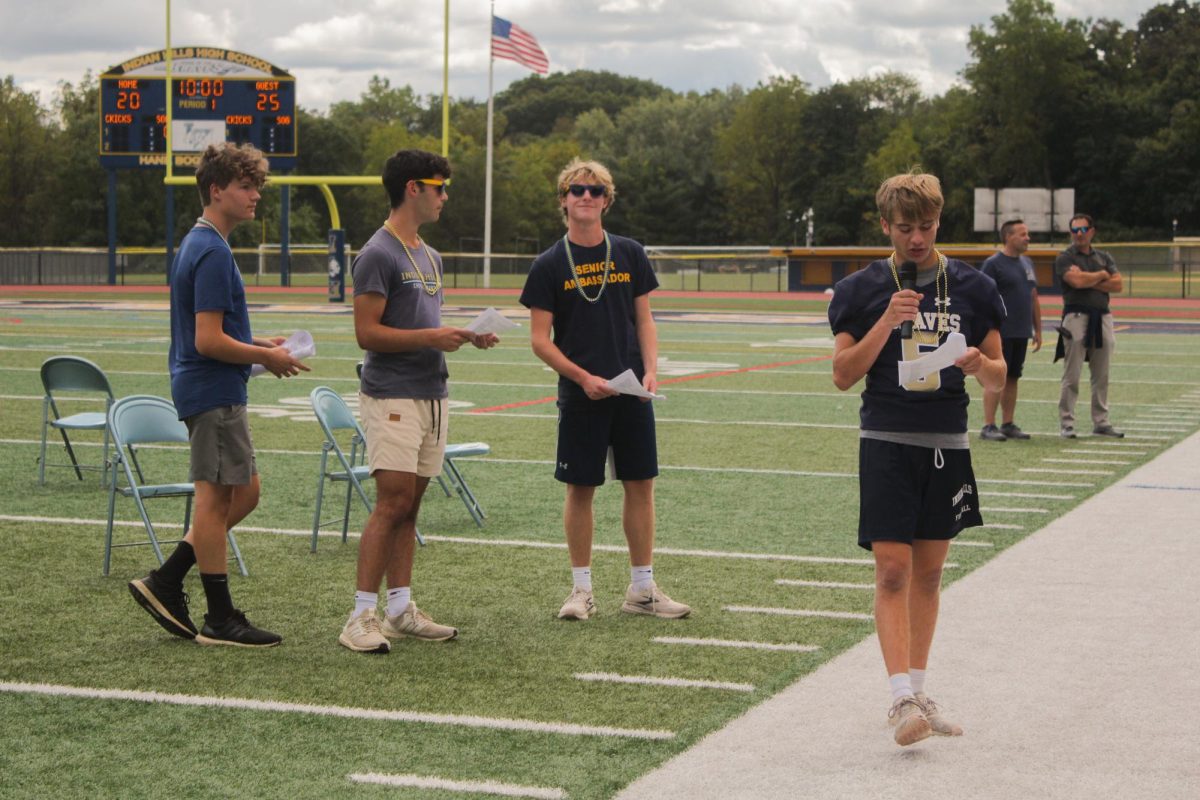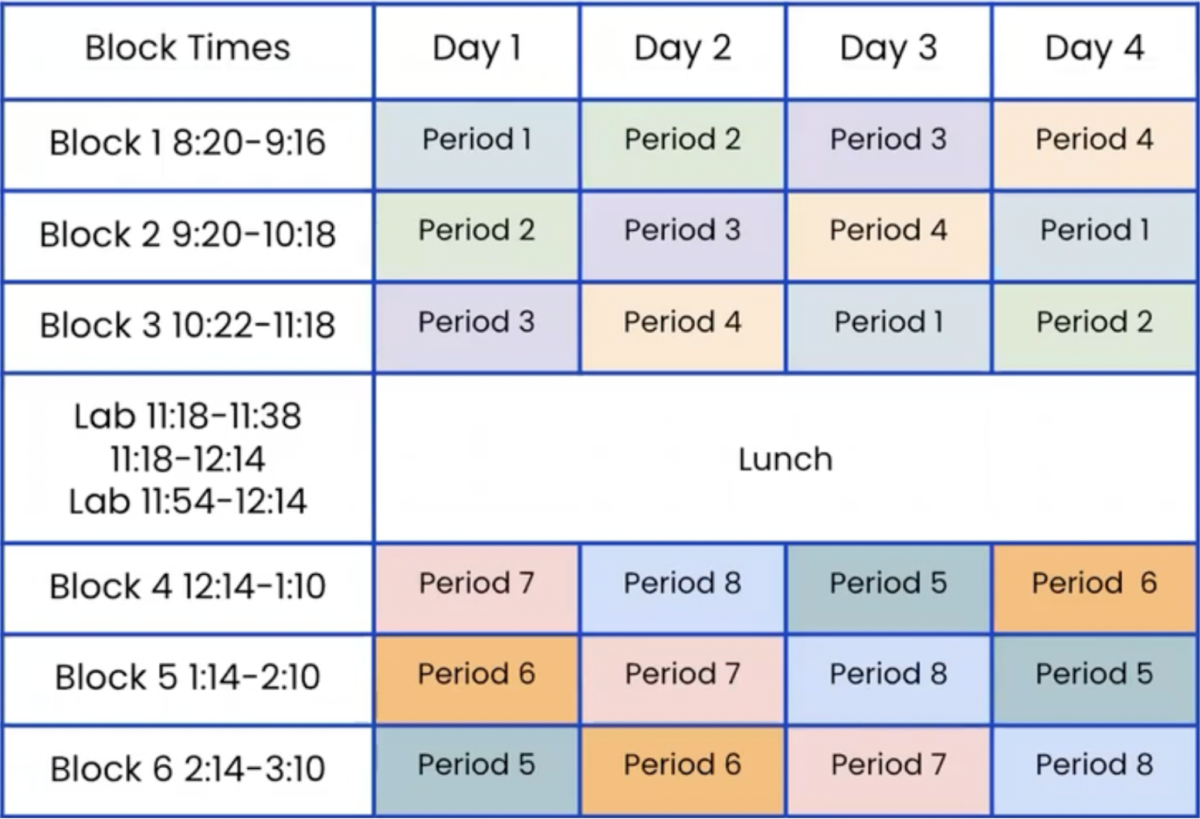(‘25)
It’s 11 p.m. on a school night and you are feverishly doing internet research for your paper due the next day. You click on the link to a website that shows promise until you run into this message from Cisco Umbrella: This site is blocked due to content filtering. You may be thinking “Why is this happening to me?” or “What is content filtering?”
’ internet access to images and content that are “harmful” in accordance with the Children’s Internet Protection Act (CIPA). According to FLOW Policy 2631, in accordance with the CIPA, “Students […] will not transmit or access material that is profane, obscene, harmful to minors (as that term is defined in the Children’s Internet Protection Act), or advocates illegal acts, violence or unlawful discrimination […]” The goal of these rules and restrictions is simple: to protect children from harmful and distracting content on the internet. However, problems have arisen from content filtering when students are attempting to use school-issued computers for academic pursuits.
Students at Indian Hills are finding that articles needed for their academic or personal education are being blocked, stifling their ability to complete necessary tasks. Alexa Koller, a sophomore at IHHS, finds this issue to be extremely inconvenient. She goes on to say, “I was doing research on the topic of cardiomyoplasty for my anatomy quarterly, and at least 5 websites were blocked. I even had to ask my friend’s Dad (a heart surgeon) my questions.”
Yet how can webpages on cardiovascular surgery be deemed harmful under the CIPA? When it comes to website blocking, it’s just not possible to pick and choose individual sites to block. Therefore, most administrators use software that blocks sites by entire categories. In Alexa’s case, cardiomyoplasty must be part of a blocked category.
In addition to operational issues, CIPA has also been criticized as potentially violating students’ First Amendment liberties. In 2001, the American Civil Liberties Union (ACLU) and the American Library Association (ALA) challenged CIPA, claiming in their complaint that “[…] the CIPA violates the First Amendment because it prevents citizens from communicating and accessing constitutionally protected speech, imposes a prior restraint on speech, is not narrowly tailored to limit speech in the least restrictive way possible […]”
Despite the attempts to prevent CIPA from causing issues in various avenues, CIPA has survived.
Indian Hills students voice their compelling opinions on the subject of content filtering. Sydney Zearfaus, a sophomore at IHHS, thinks that high-school students are mature enough to decide which sites they can visit and which sites they should not. Sydney adds how “When we leave school we can go on those sites anyway on another computer, so, what’s the point?” Conversely, students like Isabella Saldano, a sophomore, see the value in the rules, “Protecting young adults from harmful content is a valid goal,” she says. “It seems like every day we are reading about misguided youths driven to violence or depression from the internet. If the administration can take action to help stop that from happening, then they should try. And if that means I have to wait until after school to play Tetris, then so be it”.
Although the Children’s Internet Protection Act strives to protect children from the risks of the Internet, it is important to consider whether being filtered in an unfiltered world is beneficial, and whether Internet censorship in schools is really effective. Students at Indian Hills support across-the-board opinions regarding Administration’s role in content filtering.


